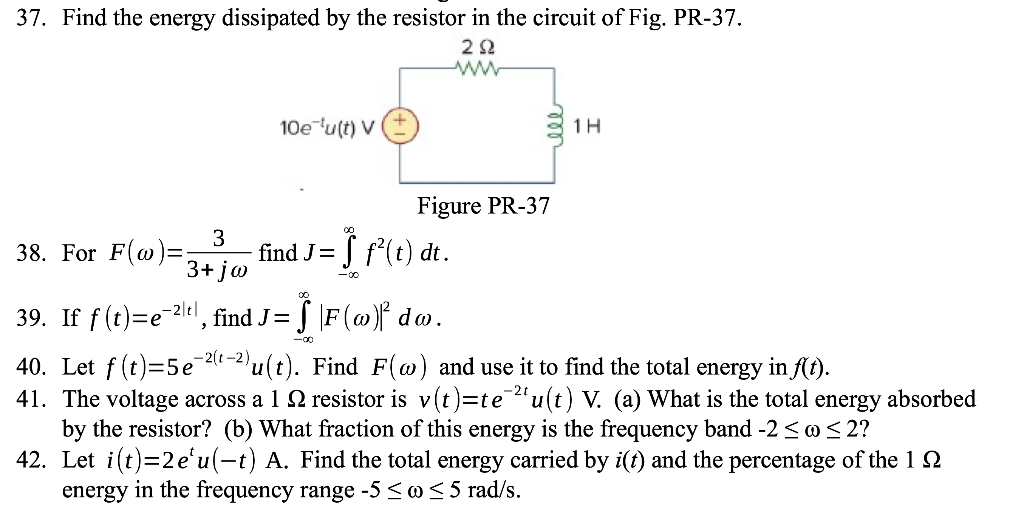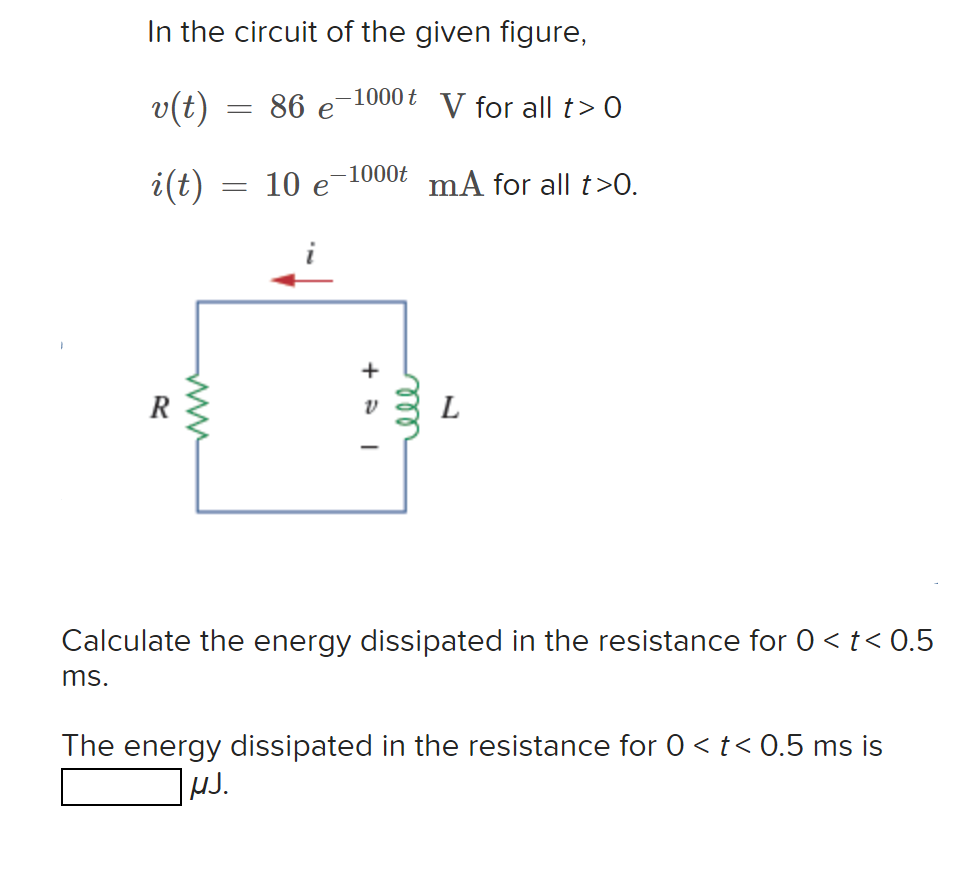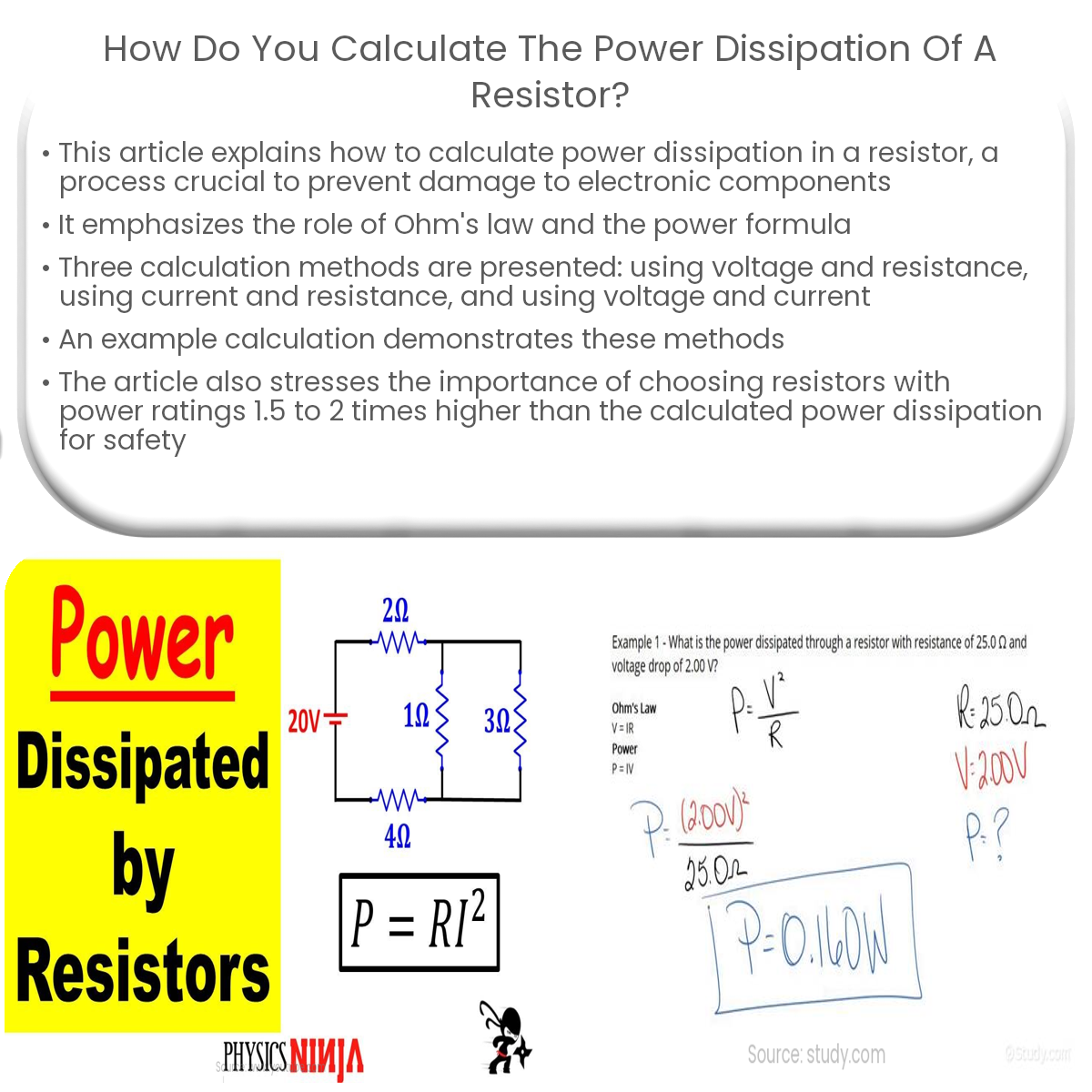How To Find Energy Dissipated How To Find
How To Find Energy Dissipated How To Find - There are two possible formulas for power dissipation. \(e\) is the energy dissipation rate in joules. The higher the dissipation rate, the. To calculate the energy dissipation rate, use the formula: \[ e = \frac{ted}{t} \] where: P = r\cdot i^2 p =. When a coulomb drops through a volt, it loses potential. The first one requires you to know resistance and current: When current flows through a resistor, electricity is falling through a potential difference. Processes in which some amount of mechanical energy disappears (that is, it cannot be found anywhere anymore as either macroscopic.
When current flows through a resistor, electricity is falling through a potential difference. There are two possible formulas for power dissipation. Processes in which some amount of mechanical energy disappears (that is, it cannot be found anywhere anymore as either macroscopic. The first one requires you to know resistance and current: To calculate the energy dissipation rate, use the formula: P = r\cdot i^2 p =. \(e\) is the energy dissipation rate in joules. The higher the dissipation rate, the. An energy dissipation rate is the amount of energy per unit of time a system can dissipate. When a coulomb drops through a volt, it loses potential.
An energy dissipation rate is the amount of energy per unit of time a system can dissipate. P = r\cdot i^2 p =. There are two possible formulas for power dissipation. When current flows through a resistor, electricity is falling through a potential difference. Processes in which some amount of mechanical energy disappears (that is, it cannot be found anywhere anymore as either macroscopic. When a coulomb drops through a volt, it loses potential. \(e\) is the energy dissipation rate in joules. The higher the dissipation rate, the. The first one requires you to know resistance and current: \[ e = \frac{ted}{t} \] where:
Energy Dissipated by Frictional Forces as an Object with Potential
The higher the dissipation rate, the. When a coulomb drops through a volt, it loses potential. The first one requires you to know resistance and current: Processes in which some amount of mechanical energy disappears (that is, it cannot be found anywhere anymore as either macroscopic. To calculate the energy dissipation rate, use the formula:
How To Find Dissipated Power in a Resistor Circuit Analysis Solved
The first one requires you to know resistance and current: To calculate the energy dissipation rate, use the formula: When a coulomb drops through a volt, it loses potential. P = r\cdot i^2 p =. \[ e = \frac{ted}{t} \] where:
Question Video Recalling the Formula for Dissipated Energy Nagwa
\(e\) is the energy dissipation rate in joules. The first one requires you to know resistance and current: \[ e = \frac{ted}{t} \] where: There are two possible formulas for power dissipation. Processes in which some amount of mechanical energy disappears (that is, it cannot be found anywhere anymore as either macroscopic.
Solved 37. Find the energy dissipated by the resistor in the
\[ e = \frac{ted}{t} \] where: There are two possible formulas for power dissipation. The higher the dissipation rate, the. P = r\cdot i^2 p =. When current flows through a resistor, electricity is falling through a potential difference.
Find the Total Power Dissipated in the Circuit LandonminCarpenter
\(e\) is the energy dissipation rate in joules. When current flows through a resistor, electricity is falling through a potential difference. Processes in which some amount of mechanical energy disappears (that is, it cannot be found anywhere anymore as either macroscopic. There are two possible formulas for power dissipation. \[ e = \frac{ted}{t} \] where:
Power Dissipated By Resistor Equation Tessshebaylo
To calculate the energy dissipation rate, use the formula: \[ e = \frac{ted}{t} \] where: The higher the dissipation rate, the. When a coulomb drops through a volt, it loses potential. When current flows through a resistor, electricity is falling through a potential difference.
How to Find Energy Dissipated by a Resistor A Comprehensive Guide
There are two possible formulas for power dissipation. P = r\cdot i^2 p =. The higher the dissipation rate, the. When a coulomb drops through a volt, it loses potential. An energy dissipation rate is the amount of energy per unit of time a system can dissipate.
Question Video Finding the Rate of Energy Dissipation Nagwa
\[ e = \frac{ted}{t} \] where: Processes in which some amount of mechanical energy disappears (that is, it cannot be found anywhere anymore as either macroscopic. The first one requires you to know resistance and current: There are two possible formulas for power dissipation. \(e\) is the energy dissipation rate in joules.
Solved In the circuit of the given figure, 1000 t v(t) = 86
There are two possible formulas for power dissipation. P = r\cdot i^2 p =. When current flows through a resistor, electricity is falling through a potential difference. The higher the dissipation rate, the. \(e\) is the energy dissipation rate in joules.
¿Cómo calculas la disipación de potencia de una resistencia?
When current flows through a resistor, electricity is falling through a potential difference. Processes in which some amount of mechanical energy disappears (that is, it cannot be found anywhere anymore as either macroscopic. There are two possible formulas for power dissipation. P = r\cdot i^2 p =. When a coulomb drops through a volt, it loses potential.
An Energy Dissipation Rate Is The Amount Of Energy Per Unit Of Time A System Can Dissipate.
The first one requires you to know resistance and current: Processes in which some amount of mechanical energy disappears (that is, it cannot be found anywhere anymore as either macroscopic. P = r\cdot i^2 p =. There are two possible formulas for power dissipation.
\(E\) Is The Energy Dissipation Rate In Joules.
When current flows through a resistor, electricity is falling through a potential difference. \[ e = \frac{ted}{t} \] where: When a coulomb drops through a volt, it loses potential. To calculate the energy dissipation rate, use the formula:









